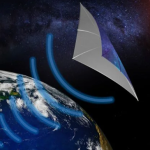Tax-Deductible Homeownership: Buying your first home in or refinancing could open the door to valuable tax deductions that boost your return. Home purchases and refinances involve various costs such as discount points, origination fees, and property taxes but knowing which expenses qualify for deductions and which don’t is key to maximizing your savings.
Tax-Deductible Expenses
Many expenses for first-time homebuyers and homeowners refinancing qualify as tax-deductible. To claim most of these, you must itemize deductions on Schedule A. For 2023, your total itemized deductions must exceed the standard deduction $13,850 for single filers or $27,700 for joint filers to see a tax benefit.
Read More: Grants and Forgivable Home Improvement Loans: Where to Find Them and Eligibility Criteria
Home Equity Loan Interest
Interest on a home equity loan may be tax-deductible if the funds are used for substantial improvements to the property securing the loan. Minor repairs or cosmetic upgrades generally don’t qualify.
Cash-Out Mortgage Interest Deduction
Mortgage interest on the first $750,000 of qualified debt is deductible if you itemize. With a cash-out refinance or home equity loan, interest is only deductible on the portion of funds used for home improvements whether major renovations or smaller upgrades like adding a garage door opener or security system.
Discount Points
Discount points paid during refinancing to lower your interest rate can be deducted but typically through annual amortization over the life of the loan. If the refinance funds were used for home improvements, you can deduct the full amount in the year paid.
Property Taxes
You can deduct up to $10,000 annually for state and local taxes, including property taxes. Be sure to exclude non-deductible charges on your tax bill, such as water, trash, or infrastructure assessments.
Home Office Deduction
If you meet IRS requirements for a home office, you can deduct a percentage of certain expenses—like utilities, HOA fees, and hazard insurance based on the office’s square footage compared to your home’s total space.
Expenses That Are Not Tax Deductible
You’ll face plenty of fees when buying your first home or refinancing, but most won’t earn you a tax break.
Homeowner’s Insurance Premiums
While property insurance protects against fire, theft, or storm damage, premiums are not tax-deductible.
Refinance Fees
Common refinance costs—such as loan assumption, credit reports, and appraisal fees—aren’t deductible unless the property is an investment, in which case they may be depreciated or deducted as business expenses.
Settlement Costs
Appraisals, inspections, title insurance, legal fees, and recording charges during a home purchase aren’t deductible on your federal return.
Private Mortgage Insurance (PMI)
The PMI deduction ended in 2021. Any mortgage insurance premiums paid in 2023 are not deductible.
Origination Points
Origination points lender fees for processing your loan cannot be deducted, unlike discount points. Each point equals 1% of the loan amount and is simply a closing cost.
Frequently Asked Questions
Can first-time homebuyers deduct closing costs?
No. Most closing costs, such as appraisal fees, title insurance, and recording charges, are not tax-deductible.
Is mortgage interest always tax-deductible?
Mortgage interest is deductible only if you itemize your return, and typically only on the first $750,000 of qualified home debt.
Are property taxes fully deductible?
You can deduct up to $10,000 annually for state and local taxes combined, including property taxes.
Can I deduct home improvements?
Home improvements are not directly deductible unless financed through a home equity loan or cash-out refinance and meet IRS criteria for substantial upgrades.
Is PMI tax-deductible in 2023?
No. Congress did not renew the PMI deduction after 2021, so you cannot deduct mortgage insurance premiums for 2023.
Are home office expenses deductible for homeowners?
Yes, if you meet IRS requirements for a home office, you can deduct a portion of utilities, insurance, and other costs based on office square footage.
Can refinancing costs be deducted?
Most refinance fees aren’t deductible, except mortgage interest and, in some cases, discount points (amortized over the life of the loan).
Conclusion
Understanding which homeownership expenses are tax-deductible can help you save money and avoid costly mistakes at tax time. While certain costs like mortgage interest, property taxes, and home office deductions—can reduce your taxable income, many common expenses such as PMI, homeowner’s insurance, and most closing fees do not qualify.











